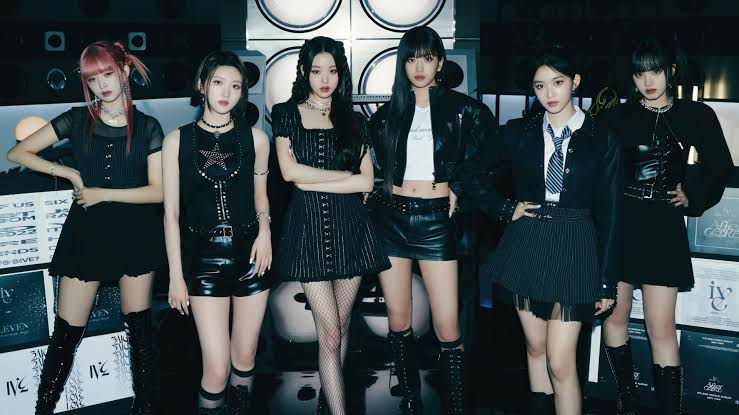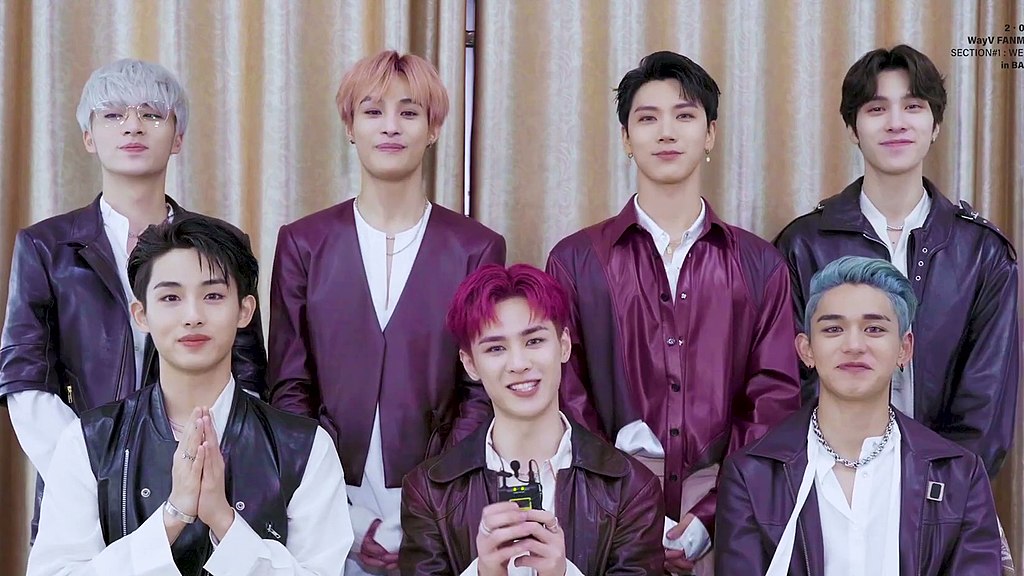In recent years, a vibrant cultural phenomenon has taken the United Kingdom by storm—Korean pop, or K-Pop. Once confined to niche fan communities, K-Pop has now exploded into mainstream consciousness, with summer events, sold-out concerts, and bustling fan stores signaling a dramatic shift in the UK’s musical landscape. This transformation is being driven by a blend of social media virality, relentless streaming on platforms like Spotify, and an increasing appetite for diversity in music and entertainment. In this article, we explore how the UK is finally embracing K-Pop, reshaping its cultural scene, and paving the way for a new era of musical fusion.
A Journey from One Direction to Itzy: Personal Stories of Transformation
Six years ago, Amber Clare was a die-hard One Direction fan—a common tale for many young music lovers in the UK at that time. Scrolling through Twitter for updates on the band’s solo projects, she unexpectedly encountered a simple yet life-changing message: “Listen to Icy by Itzy.” Intrigued by this recommendation, Amber clicked on the link and was instantly captivated by the sound, energy, and vibrant visuals of K-Pop. That moment marked the beginning of her passionate journey into the world of Korean pop.

Today, Amber is not only a devoted K-Pop fan but also a driving force in promoting the genre in the UK. As the marketing and social media manager for K-Stars—the country’s first and largest shop dedicated exclusively to Korean pop music—she has played a pivotal role in bridging the cultural gap between Korea and Britain. What began as a small operation in Manchester’s iconic Affleck’s Palace in 2019 has grown into a two-storey emporium located on Deansgate, employing over 20 dedicated K-Pop enthusiasts. Amber’s personal transformation from a One Direction aficionado to a K-Pop advocate underscores a broader trend of shifting musical tastes among British audiences.
The Rising Tide of K-Pop in the UK
The UK is fast emerging as one of the top markets for K-Pop outside of Asia. Streaming services like Spotify have recorded impressive numbers, placing the UK among the top 10 countries that follow Korean pop music. Chart-topping boybands such as Ateez have secured multiple records in the UK album charts, proving that K-Pop is no longer a fringe interest but a significant part of the contemporary music scene.
Major acts like BTS, aespa, and Blackpink have enjoyed widespread recognition, yet it’s not just these global superstars that are making waves. Smaller groups and emerging artists are also gaining a foothold, thanks to the strong grassroots support from dedicated fans and the enthusiastic promotion by local businesses. In an environment where radio and television have historically shunned anything outside of the mainstream, K-Pop’s success is a testament to the power of digital media and word-of-mouth recommendations.

Live Events and Festivals: The Heartbeat of K-Pop Summer
This summer is proving to be a landmark season for K-Pop enthusiasts in the UK. Blackpink, one of the genre’s biggest names, is set to perform two electrifying nights at Wembley Stadium—a venue that has long been synonymous with musical legends. At the same time, Stray Kids is expected to deliver a high-energy performance in Tottenham, drawing crowds that are as enthusiastic as they are diverse.
Perhaps one of the most significant events on the K-Pop calendar is the SM Town Live festival, which has been a staple in Korea since 2008. This year, in a bold move that highlights the growing importance of the UK market, SM Entertainment is transplanting its multi-day festival from Seoul to Middlesex. The festival will feature a dazzling lineup, showcasing veteran groups like Red Velvet, EXO, and Girl’s Generation alongside modern chart-toppers such as aespa, Riize, and multiple sub-units of NCT—a group renowned for its expansive roster of over 20 members. The inclusion of SMTR25, a group of promising trainees, promises a glimpse into the future of the label and the next generation of K-Pop talent.

Reese Carter from boyband Dear Alice, who is among the performers, describes the festival as “essentially a multi-day event all in one, jam-packed into a few electrifying hours.” The immersive experience of non-stop performances, energetic dance routines, and a palpable sense of community makes the festival a microcosm of the K-Pop phenomenon. These live events are not just concerts—they are cultural celebrations that unite fans from all walks of life under the banner of Korean pop.
The Role of SM Entertainment in Shaping K-Pop’s Global Reach
No discussion about K-Pop’s rise in the UK would be complete without acknowledging the pivotal role of SM Entertainment. Founded in 1995 by Lee Soo-man, SM Entertainment is widely credited with establishing the blueprint for modern K-Pop. Its innovative trainee system, which involves intensive training regimes lasting months or even years, has produced some of the most iconic names in the industry. Bands like H.O.T. and S.E.S. were among the first generation of K-Pop idols who set the stage for what was to come.
Today, SM Entertainment continues to be at the forefront of K-Pop innovation. By transplanting its signature SM Town Live festival to the UK, the company is not only celebrating its 30th anniversary but also acknowledging the shifting dynamics of the global music market. The festival’s diverse lineup pays tribute to the company’s storied history while simultaneously embracing the fresh, dynamic energy of its current roster. This strategic move underlines the importance of the UK as a burgeoning market for K-Pop, challenging the long-held notion that American audiences are the sole drivers of global success.
Bridging Cultures: Collaborations and Local Influences
One of the most exciting aspects of K-Pop’s expansion in the UK is the increasing collaboration between Korean artists and British talent. These partnerships are forging a unique musical fusion that blends the high-energy beats and meticulously choreographed performances of K-Pop with the distinct sounds and cultural influences of the UK. For instance, aespa’s 2023 single “Better Things” was co-written by British artist Raye, and Le Sserafim has recently collaborated with PinkPantheress and Jungle on tracks that reflect a more globalized sound.

Moreover, SM Entertainment’s foray into creating a British boyband—Dear Alice—is a clear indication that K-Pop labels are investing in the local talent pool to capture the UK market. Documented in the BBC series “Made In Korea,” the grueling trainee process that Dear Alice underwent highlights the dedication and rigorous standards that underpin K-Pop production. Their debut single, “Ariana,” premiered at a massive SM Town concert in Seoul, marking the beginning of what promises to be a significant cultural exchange between Korea and the UK.
The Digital Revolution and the Power of Social Media
The digital era has played an indispensable role in K-Pop’s meteoric rise. Social media platforms like Twitter, Instagram, TikTok, and YouTube have provided a global stage for K-Pop idols to showcase their talents and connect with fans. Viral dance challenges, behind-the-scenes video diaries, and interactive fan meet-ups have created an unprecedented level of engagement and community among K-Pop enthusiasts.
For many fans in the UK, these digital interactions are not merely a means of entertainment—they are a way of life. Platforms like Spotify have made it easier than ever for British audiences to discover and stream K-Pop hits, leading to impressive chart performances and a robust digital footprint. This online connectivity has also spurred local initiatives, such as K-Pop fan clubs and merchandise stores, which further cement the genre’s presence in the UK.
Marketing experts note that the blend of high-quality production, catchy hooks, and the unique visual aesthetics of K-Pop resonates deeply with younger audiences. As traditional media outlets in the UK begin to recognize the genre’s influence, there is growing momentum to feature K-Pop in radio and television programming. This shift is gradually breaking down the barriers that once confined K-Pop to niche circles, paving the way for its broader acceptance and integration into mainstream British culture.

Overcoming Stereotypes and Misconceptions
Despite its soaring popularity, K-Pop still faces challenges related to cultural misconceptions and language barriers. Many potential listeners are initially hesitant, unsure of what to expect from a genre sung predominantly in Korean. However, as more UK audiences dive into the world of K-Pop, they discover that the appeal of the music transcends linguistic differences. The infectious energy, innovative choreography, and universal themes of love, hope, and resilience have a way of connecting with listeners on a deeply emotional level.
K-Pop fans in the UK are increasingly vocal about their passion, organizing meet-ups, fan events, and online communities where they share translations, interpretations, and personal stories about their favorite idols. This grassroots movement is slowly erasing outdated stereotypes and demonstrating that music is a universal language. As British media and music platforms continue to champion diversity and global influences, K-Pop is poised to become an integral part of the UK’s rich cultural tapestry.
Economic Impact and the Future of K-Pop in the UK
The economic implications of K-Pop’s rise in the UK are significant. The burgeoning demand for Korean pop merchandise, concert tickets, and streaming content is creating new revenue streams and job opportunities. Businesses like K-Stars, which began as a humble shop in Manchester, are now thriving as major retail outlets dedicated to Korean pop culture. These success stories are inspiring entrepreneurs and investors alike, who see the potential for further expansion in this dynamic market.

Concert tours and festivals, such as Blackpink’s upcoming Wembley Stadium shows and the SM Town Live festival in Twickenham, are attracting thousands of visitors and generating substantial economic activity. These events not only boost the local economy through tourism and hospitality but also contribute to the global narrative of K-Pop as a powerhouse of modern entertainment.
Moreover, the UK’s embrace of K-Pop is fostering creative collaborations across industries. Fashion, art, and technology are converging with music, as brands seek to tap into the aesthetic and cultural influence of K-Pop idols. From exclusive fashion lines inspired by popular groups to innovative digital experiences that blend augmented reality with live performances, the opportunities for cross-industry synergy are immense.
Cultural Integration and the Broader Implications
The rise of K-Pop in the UK is more than just a musical trend—it is a reflection of the broader cultural integration happening in an increasingly globalized world. As British audiences become more open to diverse musical influences, they are also engaging with the rich cultural heritage of Korea. This exchange goes beyond music; it encompasses food, fashion, language, and lifestyle. Korean cuisine, traditional festivals, and even language classes are experiencing a surge in popularity, driven by the same passion that fuels K-Pop fandom.
Cultural institutions and educational programs in the UK are beginning to recognize the value of this cross-cultural exchange. Workshops, film festivals, and art exhibitions dedicated to Korean culture are now commonplace, offering deeper insights into the traditions and innovations that have shaped K-Pop. This growing interest is not only enriching the cultural fabric of the UK but also opening up channels for diplomatic and commercial partnerships between Korea and Britain.
Challenges Ahead and the Path to Continued Success
Despite the rapid growth and enthusiastic embrace of K-Pop in the UK, challenges remain. The genre must continue to innovate to keep pace with changing musical tastes and global competition. As traditional media in the UK slowly warms to K-Pop, there is still work to be done in breaking through language barriers and ensuring that diverse audiences feel included.

Moreover, as K-Pop expands, there is a risk of over-commercialization, where the focus shifts from artistic creativity to mere marketability. To sustain its appeal, artists and labels must strike a delicate balance between maintaining high production values and preserving the authenticity that originally drew fans into the world of Korean pop.
Industry experts also emphasize the need for strategic investment in talent development. The trainee system, pioneered by SM Entertainment and adopted by other labels, has produced some of the most iconic figures in K-Pop. However, as global demand increases, it will be essential to nurture new talent while ensuring that the rigorous standards of performance and artistry remain intact.
Embracing the Future: A New Era for UK K-Pop Fans
The current K-Pop summer in the UK signals the beginning of a new era—one where Korean pop is not just a passing fad, but a permanent fixture in the global music scene. With major concerts, record-breaking streaming numbers, and a rapidly growing fanbase, the future looks bright for K-Pop enthusiasts across Britain.
UK-based businesses, media outlets, and cultural organizations are increasingly recognizing the potential of K-Pop to drive innovation and diversity. As the genre continues to evolve, it will likely inspire new forms of artistic expression and foster even greater cross-cultural collaboration. For fans like Amber Clare and many others, the embrace of K-Pop is not just about music—it’s about community, identity, and the celebration of creativity in all its forms.
Conclusion: A Cultural Revolution in Motion
The story of K-Pop’s ascent in the UK is one of transformation, resilience, and unyielding passion. From the serendipitous Twitter discovery that changed Amber Clare’s life to the bustling halls of K-Stars in Manchester, every facet of this phenomenon reflects a broader cultural revolution. As K-Pop artists take to the stages of Wembley and Twickenham, and as local businesses and global brands collaborate to create unique experiences, the UK is finally embracing Korean pop in a way that promises lasting impact.
As audiences become more interconnected through digital media and cultural exchange, K-Pop is poised to continue its extraordinary journey—reshaping not only the music industry but also the cultural landscape of the UK and beyond.
In essence, the K-Pop summer in the UK is not merely about catchy tunes and vibrant performances—it is a celebration of diversity, innovation, and the power of music to bring people together. As the phenomenon gains momentum, it challenges old conventions and paves the way for a future where cultural boundaries are blurred, and global unity is achieved through the universal language of music.
For fans, artists, and industry insiders alike, the rise of K-Pop in the UK represents a bold new chapter—a testament to how far the genre has come and a glimpse into the limitless possibilities that lie ahead. The revolution is in full swing, and as the summer unfolds, the heartbeat of K-Pop will undoubtedly echo across the streets of Britain, heralding a new era of musical and cultural synergy that will resonate for generations to come.










